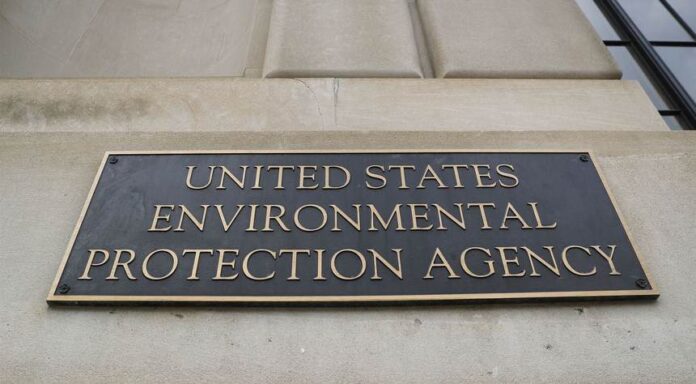Members of the climate cabal like Rep. Alexandria Ocasio-Cortez (D-N.Y.) were devastated by the West Virginia v Environmental Protection Agency ruling. Although she is a fervent advocate for “our democracy”, today she was in a “burn all the bridges” mood for the planet. It was a great news story for anyone who cares about human flourishing and economic freedom.
West Virginia is the fifth-largest producer of fossil fuels in the United States and the second-largest coal producer. The ruling was hailed by Riley Moore, West Virginia’s State Treasurer. Riley stated that “coal and liquid natural gases run this state.” “The D.C. administrative state had to be reversed. The EPA was not authorized to issue economy-shifting regulations. This win is good news for West Virginia as well as the country.
Moore claims that the price of coal rose from $35 to $200 per ton due to the lack of fossil fuels caused by Biden’s energy policies. A significant amount gets exported. The industry faces the greatest challenge of losing capital access due to the woke ESG policies of many banks and investment companies. Despite these difficulties, West Virginia is bouncing from the destruction caused by Obama EPA’s Clean Power Plan.
Riley stated that the initial push had destroyed many of the highest-paying jobs in the state. “Easily in the tens of thousands for coal and related employment. The state saw a rise in drug addiction and joblessness. The entire environmental crusade is a solution to a problem. Two things are essential for human flourishing. Affordable energy and good jobs are key to human flourishing.
West Virginia is rebounding despite higher coal prices. Moore stated that new coal mining operations have been started, and owners are finding creative financing options for their operations due to capital restrictions. The state continues to use coal for its power plants. Moore claimed that “we have the best and cleanest coal in all of the world.” We don’t need any pity. We want to be left alone. This state would shine if that were possible.
Derek Kreifels (CEO of the State Financial Officers Foundation) agrees that this ruling is a victory for economic freedom. We applaud today’s Supreme Court decision to overturn an Obama-era relic that allowed executive overreach. Kreifels stated that this ruling was an unprecedented attempt by Congress to increase the power of a politicized agency beyond what Congress intended when it passed the Clean Air Act of 1970. “The decision today is more than a victory for States that would be unfairly affected by excessive regulation. It’s a blow against the centralization of power, and the growth Administrative State, which threatens economic freedom that has made America envy in the world.
Steve Milloy is an Energy and Environmental Institute senior fellow and a former Trump/Pence EPA Transition Team member. He agrees that the ruling forces the EPA to follow the authority given to them by Congress. Milloy claims that there is nothing in EPA’s mandate which allows the agency to regulate greenhouse gases. The Supreme Court decision seems to prohibit it. Milloy asked, “Will all other regulations governing greenhouse gases be challenged?” “We’ll see.”
He warns, however, that the agency will attempt to do indirect things it is not allowed to do directly. Milloy stated that the EPA is currently working to improve air quality standards for ozone, particulate matter, and other pollutants. The EPA has the power to deny highway funds to cities or states that don’t meet these standards. The EPA is now responsible for local economies. Milloy asked, “Did anybody intend that when Congress created the agency?”
Milloy says that this regulation will impact what is built, how energy sources are used, and which industries are established in the country. These new regulations, unlike the Clean Power Plan that SCOTUS ended today, will not direct economic change. They will instead change the way energy is created by air quality regulations. Already, a lawsuit has been filed against the new rules.
Young v. EPA is a case in D.C. District Court that challenges the EPA’s ability to create an advisory board to review air quality regulations. According to the Washington Times
Clean Air Act mandates that EPA consult a panel known as Clean Air Scientific Advisory Committee, (CASAC) when setting standards for air quality. Biden EPA administrator Michael Regan took office earlier this year. One of his first actions was to send terse emails to all members of all EPA science advisory panels, including CASAC, without causing any fire. Administrator Regan announced that he would eliminate conflict-of-interest rules, which were established by Trump EPA. This bans science advisors from receiving EPA grants.
Dr. Lianne Sheppard was one of the five new members. She received more than $60 million in grants from EPA. Five members of the board are EPA grantees. This conflict of interest is part of the foundation for the lawsuit.
Moore and Kreifels both agree that today’s ruling is a victory in one fight in a long battle to control the EPA. Kreifels said, “Regulatory agencies must stay in their lane.” They must stop trying to alter the law through regulation.
Moore said it’s not only federal agencies. Woke capital is used to weaponize fossil fuels and other industries that are disfavored by global elites. West Virginia is taking action to defend itself. All liquidity funds received from investment firms boycotting fossil fuels have been taken by the state. The state also just notified banks that process over $20 billion in ACH funds on behalf of the state that West Virginia will close down any business that employs what is often called environmental, socio-, and governance (ESG).
Moore stated that “We aren’t going to fund ourselves.” West Virginia’s legislature is looking at removing state pension funds from ESG-using investment firms. Kreifels agreed that ESG banking and investing are other areas of concern for states and local governments. The environmental movement is well aware that sweeping environmental initiatives can’t be passed legislatively. He stated that they would push ESGs through the private sector to bypass federal and state legislatures.
The SCOTUS ruling today was a significant step in the right direction. Small-government advocates who want to rein in the administrative state need to keep their heads up. It will take a complex game called Whack-a-Mole to restore true economic freedom. This involves leveraging the power and resources of each state to manage their finances, as well as challenging executive overreach back at SCOTUS when needed.




